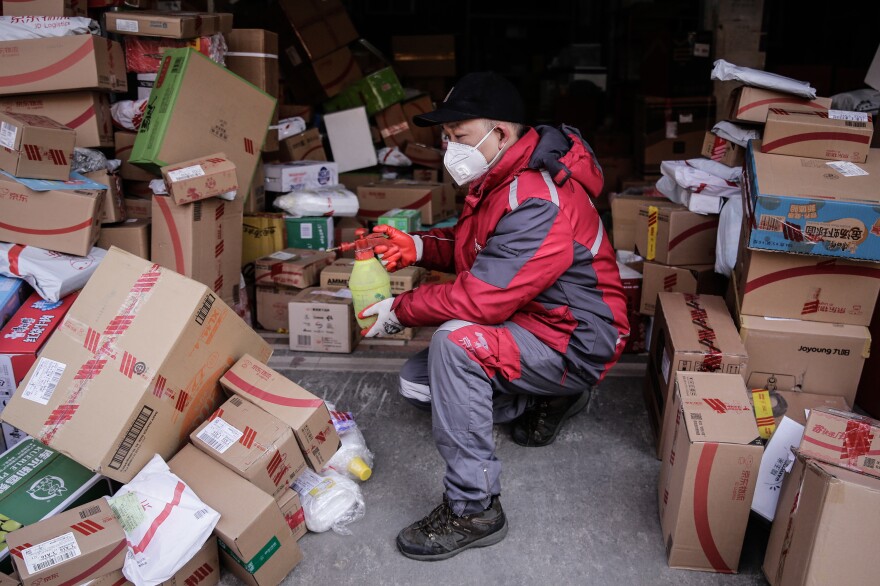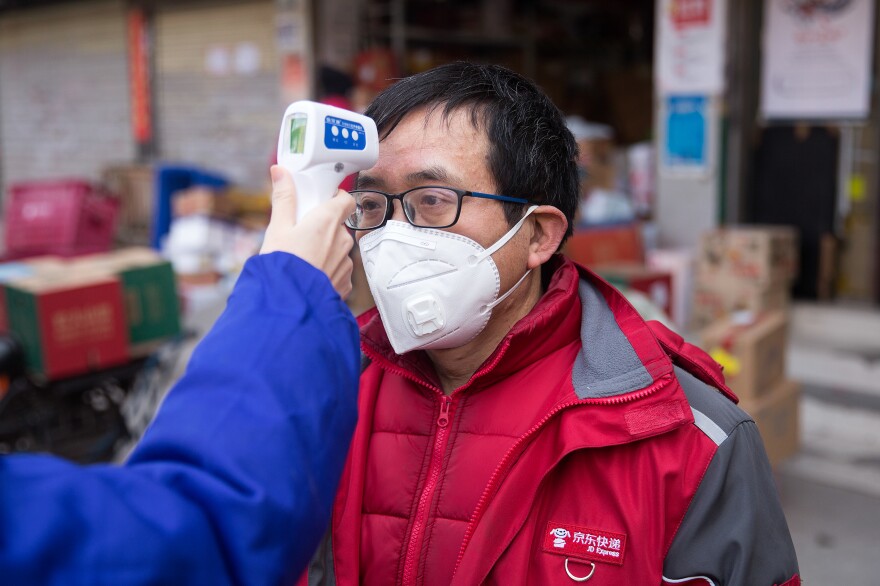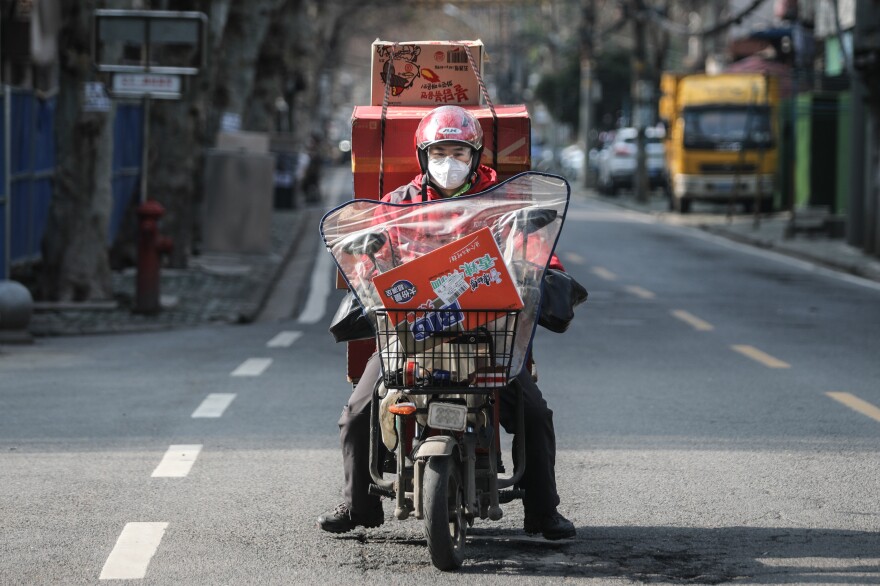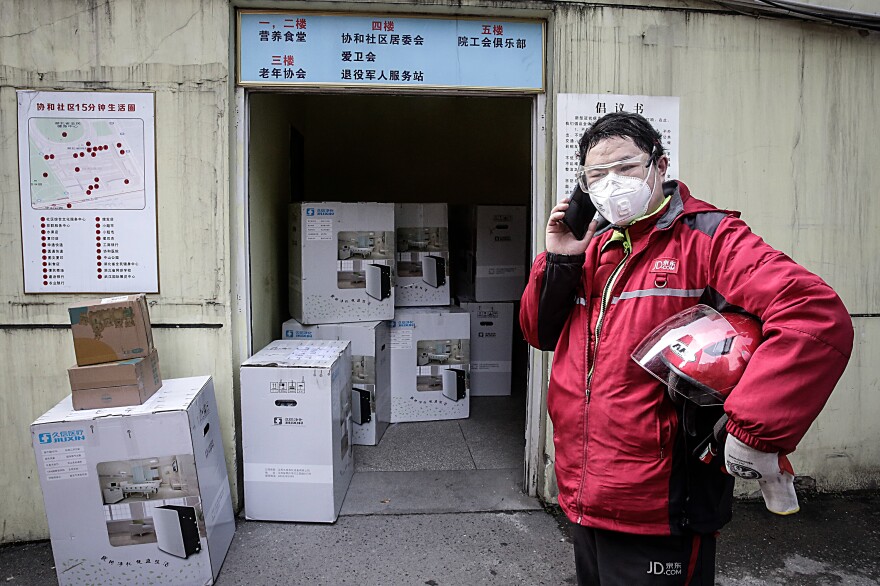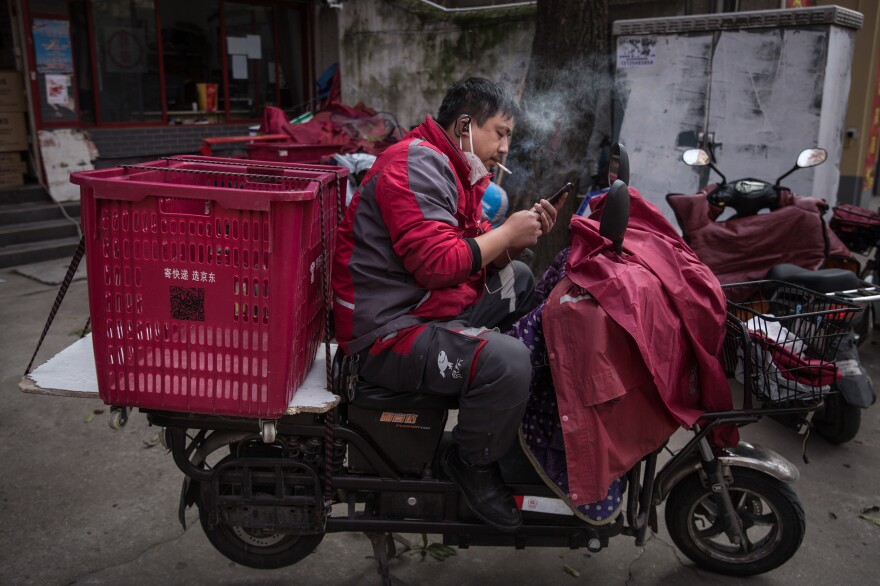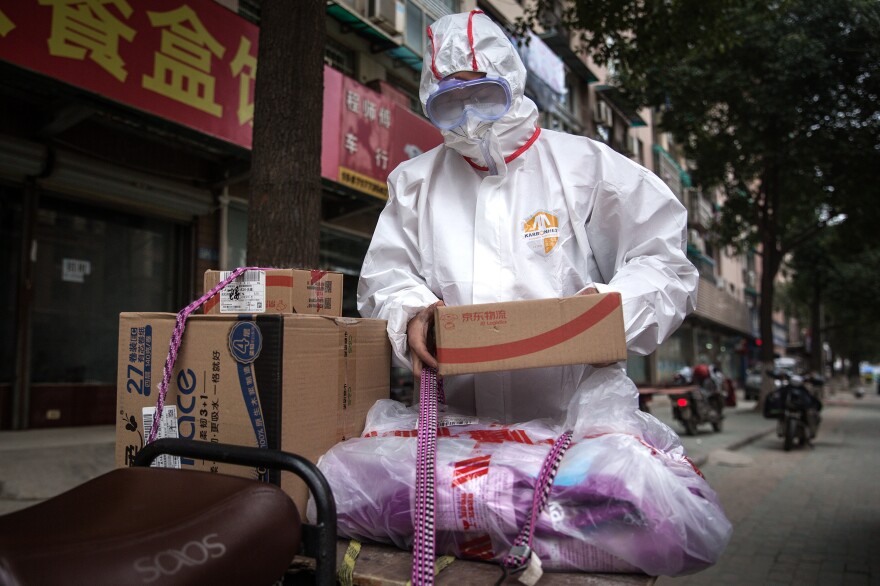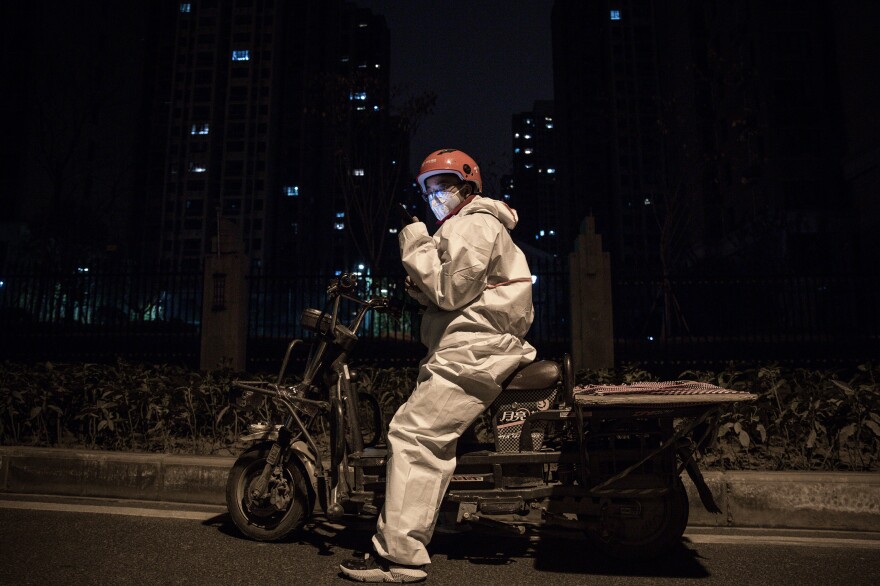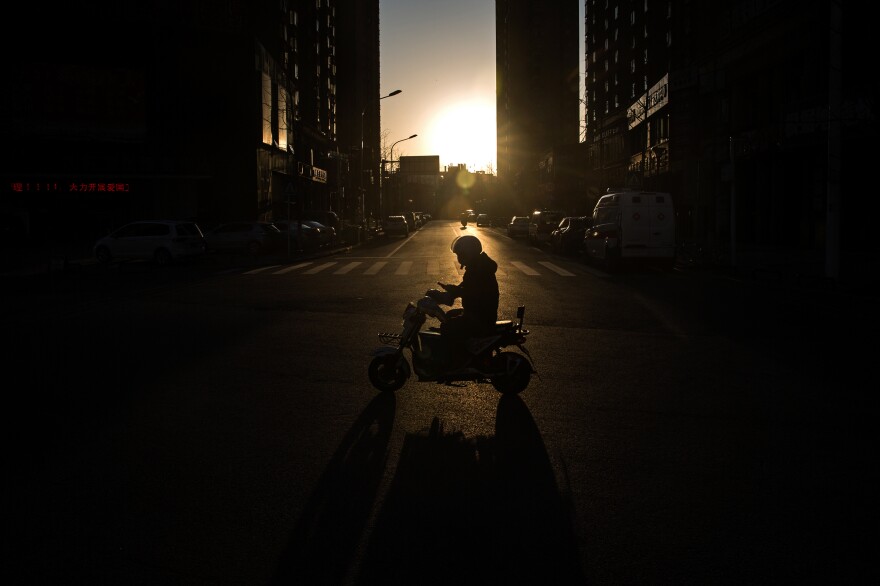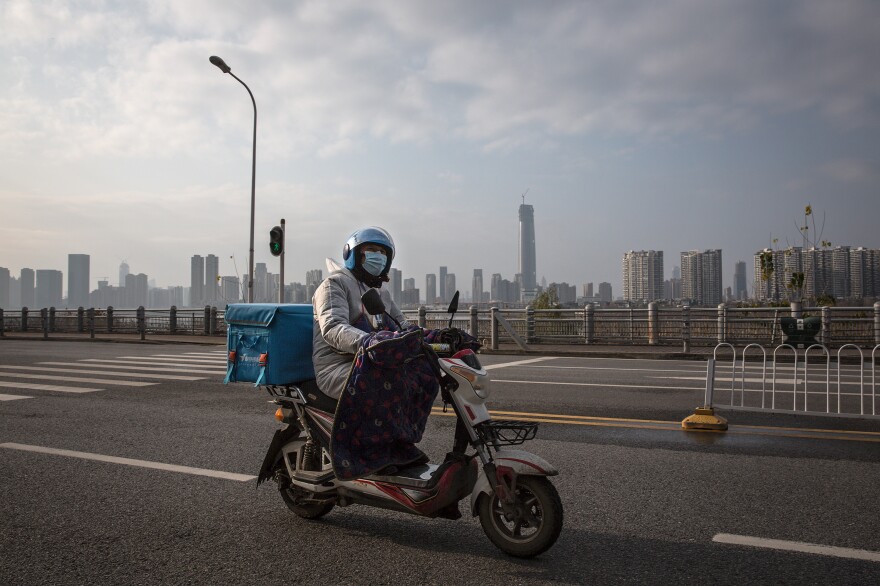Wuhan, the epicenter of the coronavirus outbreak in China, has been in lockdown mode for weeks. But its delivery workers, zipping through empty streets on their motorcycles and scooters, are still very much on the move.
To avoid transmission of the virus, people have been told to stay at home and limit time outdoors. As a result, when they need food or other necessities, many of them turn to delivery workers, who put themselves at risk of exposure to the virus by interacting with dozens of customers, some of whom are sick, and handling multiple packages a day.
The food deliveries include fresh fruit and vegetables, dry goods like instant noodles and some treats, too — like waffles.
In addition, hospitals are depending on the couriers to bring medical supplies.
Delivery companies are struggling to keep up. In a press conference in February, the department of commerce director of Hubei province, Qin Jun, said that in a single day, e-commerce companies received 22,000 orders in the province and delivered 1,337 tons of necessities. JD Logistics, one of the country's largest courier companies, says they are looking to hire 20,000 warehouse workers, couriers and drivers to help with deliveries during the outbreak. JD hires men and women, and a recent ad said it pays between $721 to $1,400 a month.
A prize-winning international photojournalist who lives in Wuhan has captured scenes of the couriers in action. The photographer asked not to be named because of concerns of being targeted by the government.
Asked how the couriers manage to keep up their grueling schedule — they typically work 8 to 12 hour days — he wrote in an email to NPR: "Couriers are ants. Nothing can stop them."
Copyright 2020 NPR. To see more, visit https://www.npr.org.
